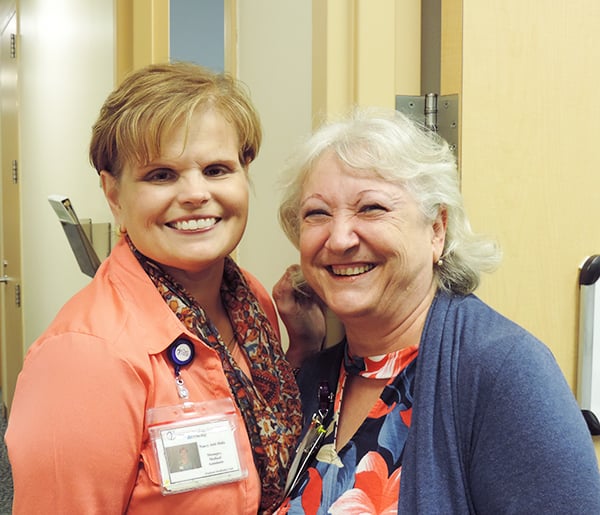Lung Cancer Care and Treatment Available at Virginia Oncology Associates
The lungs are the two organs located beneath the rib cage that provide life-sustaining oxygen throughout the body. They are neither symmetrical nor functionally identical, with the left lung consisting of two lobes and the right three. Lung cancer begins when cells of a lung become abnormal and begin growing out of control. When the abnormal cancer cells grow, they can form into a tumor and even spread to other areas of the body (metastasize).
Review this section's important information about lung cancer diagnosis, staging, and treatment options, as well as lung cancer patient and survivor resources as you prepare for an appointment with your oncologist. After reviewing these sections, ask your cancer care team any additional questions that you may have about your individual situation.
If you have signs or symptoms of lung cancer, your doctor will order tests to look for cancerous cells and make a lung cancer diagnosis. There are a variety of tests that can be used to diagnose either Non-Small Cell or Small Cell Lung Cancer; your doctor may recommend one (or more) of the following tests:
- Chest X-Ray
- Biopsy
- Sputum Cytology
- Imaging Tests
There are two types of lung cancer: Small Cell Lung Cancer (SCLC) and Non-Small Cell Lung Cancer (NSCLC). Each type is named based on the kind of cells found in the cancer and how the cells appear when viewed under a microscope. The cancer cells of each type grow and spread differently which affects the types of treatment that are used.
The lung cancer doctors at Virginia Oncology Associates work together with you to develop the best lung cancer treatment plan for you based on your type of lung cancer, the stage of your lung cancer and various other factors. Your treatment options may include:
Virginia Oncology Associates’ cancer researchers are leading the way to find new lung cancer treatment options through clinical trials that are available at locations across Virginia - including Chesapeake, Hampton, Newport News, Norfolk, and Virginia Beach.
We are always looking for the latest cancer treatment options for our patients and are also involved with many other types of breakthrough lung cancer research studies.
There are several risk factors that can leave you more susceptible to developing both types of lung cancer. Knowing and steering clear of these risk factors can minimize exposure and can significantly reduce your chances of developing lung cancer. Some of the most leading lung cancer risk factors include:
- Smoking
- Radon Exposure
- Exposure to Asbestos
- Personal or family History
We understand that a new diagnosis of any form of lung cancer can be overwhelming, and that is why we offer an integrated team-oriented approach to provide patients with the best possible care during every step of their lung cancer journey. We are also eager to explain the facts and answer your questions along the way. Our team of dedicated, highly-trained oncologists and staff is committed to providing the highest quality, compassionate care to our patients during their care with us.
Virginia Oncology Associates' lung cancer treatment services are delivered in a non-hospital setting at our locations in Chesapeake, Elizabeth City, Hampton, Newport News, Norfolk, Suffolk, Virginia Beach, and Williamsburg.
Lung Cancer Treatment in Hampton Roads & Eastern North Carolina
The comprehensive and compassionate approach offered by our lung cancer team at Virginia Oncology Associates combines the most advanced treatments with education and support services. Our oncologists specialize in lung cancer care and are ready to talk to you about your diagnosis and personalized treatment options.


Listen to our podcast episode about the progression and treatment of non-small cell lung cancer.
In this episode, learn about the groundbreaking strides made in the fight against non-small cell lung cancer. Dr. Christopher Paschold, oncologist at VOA, shares his expertise on the latest in lung cancer treatment and screening. This conversation sheds light on the silent progression of non-small cell lung cancer and the important role early detection plays in improving outcomes. Dr. Paschold talks about the importance of proactive screening, especially for those at high-risk of developing the disease. We also explore the impact of breakthrough therapies, like immunotherapy and targeted therapy treatments, offering new hope to patients.
Lung Cancer Resources












